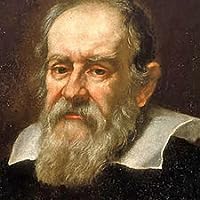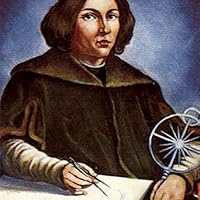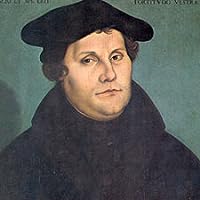Nicolaus Copernicus Quotes
Quotes tagged as "nicolaus-copernicus"
Showing 1-13 of 13

“I esteem myself happy to have as great an ally as you in my search for truth. I will read your work ... all the more willingly because I have for many years been a partisan of the Copernican view because it reveals to me the causes of many natural phenomena that are entirely incomprehensible in the light of the generally accepted hypothesis. To refute the latter I have collected many proofs, but I do not publish them, because I am deterred by the fate of our teacher Copernicus who, although he had won immortal fame with a few, was ridiculed and condemned by countless people (for very great is the number of the stupid).
{Letter to fellow revolutionary astronomer Johannes Kepelr}”
― Frammenti e lettere
{Letter to fellow revolutionary astronomer Johannes Kepelr}”
― Frammenti e lettere

“If the people of Europe had known as much of astronomy and geology when the bible was introduced among them, as they do now, there never could have been one believer in the doctrine of inspiration. If the writers of the various parts of the bible had known as much about the sciences as is now known by every intelligent man, the book never could have been written. It was produced by ignorance, and has been believed and defended by its author. It has lost power in the proportion that man has gained knowledge. A few years ago, this book was appealed to in the settlement of all scientific questions; but now, even the clergy confess that in such matters, it has ceased to speak with the voice of authority. For the establishment of facts, the word of man is now considered far better than the word of God. In the world of science, Jehovah was superseded by Copernicus, Galileo, and Kepler. All that God told Moses, admitting the entire account to be true, is dust and ashes compared to the discoveries of Descartes, Laplace, and Humboldt. In matters of fact, the bible has ceased to be regarded as a standard. Science has succeeded in breaking the chains of theology. A few years ago, Science endeavored to show that it was not inconsistent with the bible. The tables have been turned, and now, Religion is endeavoring to prove that the bible is not inconsistent with Science. The standard has been changed.”
― Some Mistakes of Moses
― Some Mistakes of Moses

“Is it possible that the Pentateuch could not have been written by uninspired men? that the assistance of God was necessary to produce these books? Is it possible that Galilei ascertained the mechanical principles of 'Virtual Velocity,' the laws of falling bodies and of all motion; that Copernicus ascertained the true position of the earth and accounted for all celestial phenomena; that Kepler discovered his three laws—discoveries of such importance that the 8th of May, 1618, may be called the birth-day of modern science; that Newton gave to the world the Method of Fluxions, the Theory of Universal Gravitation, and the Decomposition of Light; that Euclid, Cavalieri, Descartes, and Leibniz, almost completed the science of mathematics; that all the discoveries in optics, hydrostatics, pneumatics and chemistry, the experiments, discoveries, and inventions of Galvani, Volta, Franklin and Morse, of Trevithick, Watt and Fulton and of all the pioneers of progress—that all this was accomplished by uninspired men, while the writer of the Pentateuch was directed and inspired by an infinite God? Is it possible that the codes of China, India, Egypt, Greece and Rome were made by man, and that the laws recorded in the Pentateuch were alone given by God? Is it possible that Æschylus and Shakespeare, Burns, and Beranger, Goethe and Schiller, and all the poets of the world, and all their wondrous tragedies and songs are but the work of men, while no intelligence except the infinite God could be the author of the Pentateuch? Is it possible that of all the books that crowd the libraries of the world, the books of science, fiction, history and song, that all save only one, have been produced by man? Is it possible that of all these, the bible only is the work of God?”
― Some Mistakes of Moses
― Some Mistakes of Moses

“The Christians who engaged in infamous persecutions and shameful inquisitions were not evil men but misguided men. The churchmen who felt they had an edict from God to withstand the progress of science, whether in the form of a Copernican revolution or a Darwinian theory of natural selection, were not mischievous men but misinformed men.”
― Strength to Love
― Strength to Love

“After the birth of printing books became widespread. Hence everyone throughout Europe devoted himself to the study of literature... Every year, especially since 1563, the number of writings published in every field is greater than all those produced in the past thousand years. The Paracelsians have created medicine anew and the Copernicans have created astronomy anew. I really believe that at last the world is alive, indeed seething, and that the stimuli of these remarkable conjunctions did not act in vain.”
―
―

“Mathemata mathematicis scribuntur.”
― De Revolutionibus Libri Sex (Nicolaus Copernicus: Gesamtausgabe)
― De Revolutionibus Libri Sex (Nicolaus Copernicus: Gesamtausgabe)

“There is talk of a new astrologer [Nicolaus Copernicus] who wants to prove that the earth moves and goes around instead of the sky, the sun, the moon, just as if somebody were moving in a carriage or ship might hold that he was sitting still and at rest while the earth and the trees walked and moved. But that is how things are nowadays: when a man wishes to be clever he must . . . invent something special, and the way he does it must needs be the best! The fool wants to turn the whole art of astronomy upside-down. However, as Holy Scripture tells us, so did Joshua bid the sun to stand still and not the earth.
[Martin Luther stating his objection to heliocentrism due to his Scripture's geocentrism]”
―
[Martin Luther stating his objection to heliocentrism due to his Scripture's geocentrism]”
―

“...Bana öyle geliyor ki, Pythagorasçılar bazılarının düşündüğü gibi, öğretilerini paylaşmaktan duydukları kıskançlıktan değil de, büyük insanlara ait böylesine güzel ve binbir zorlukla dolu keşif, maddî bir kazancı olmaksızın kalem oynatmayı sıkıcı bulan ya da başkalarının yüreklendirip örnek olmasıyla hür felsefe çalışmasına özendirilse de aklî donukluklarından ötürü filozoflar arasında tıpkı bal arılarının arasındaki erkek arılar gibi duran kişilerce hor görülmesin diye böyle yapıyordu.”
― Göksel Kürelerin Devinimleri Üzerine
― Göksel Kürelerin Devinimleri Üzerine

“When in 1863 Thomas Huxley coined the phrase 'Man's Place in Nature,' it was to name a short collection of his essays applying to man Darwin's theory of evolution. The Origin of Species had been published only four years before, and the thesis that man was literally a part of nature, rather than an earthy vessel charged with some sublimer stuff, was so novel and so offensive to current metaphysics that it needed the most vigorous defense. Half the civilized world was rudely shocked, the other half skeptically amused.
Nearly a century has passed since the Origin shattered the complacency of the Victorian world and initiated what may be called the Darwinian revolution, an upheaval of man's ideas comparable to and probably exceeding in significance the revolution that issued from Copernicus's demonstration that the earth moves around the sun. The theory of evolution was but one of many factors contributing to the destruction of the ancient beliefs; it only toppled over what had already been weakened by centuries of decay, rendered suspect by the assaults of many intellectual disciplines; but it marked the beginning of the end of the era of faith.”
― Man and His Gods
Nearly a century has passed since the Origin shattered the complacency of the Victorian world and initiated what may be called the Darwinian revolution, an upheaval of man's ideas comparable to and probably exceeding in significance the revolution that issued from Copernicus's demonstration that the earth moves around the sun. The theory of evolution was but one of many factors contributing to the destruction of the ancient beliefs; it only toppled over what had already been weakened by centuries of decay, rendered suspect by the assaults of many intellectual disciplines; but it marked the beginning of the end of the era of faith.”
― Man and His Gods

“A man that is of Copernicus’ Opinion, that this Earth of ours is a Planet, carry’d round and enlightn’d by the Sun, like the rest of them, cannot but sometimes have a fancy … that the rest of the Planets have their Dress and Furniture, nay and their Inhabitants too as well as this Earth of ours.… But we were always apt to conclude, that ’twas in vain to enquire after what Nature had been pleased to do there, seeing there was no likelihood of ever coming to an end of the Enquiry … but a while ago, thinking somewhat seriously on this matter (not that I count my self quicker sighted than those great Men [of the past], but that I had the happiness to live after most of them) me thoughts the Enquiry was not so impracticable nor the way so stopt up with Difficulties, but that there was very good room left for probable Conjectures.”
―
―

“After a duration of a thousand years, the power of astrology broke down when, with Copernicus, Kepler, and Galileo, the progress of astronomy overthrew the false hypothesis upon which the entire structure rested, namely the geocentric system of the universe. The fact that the earth revolves in space intervened to upset the complicated play of planetary influences, and the silent stars, related to the unfathomable depths of the sky, no longer made their prophetic voices audible to mankind. Celestial mechanics and spectrum analysis finally robbed them of their mysterious prestige.”
― Astrology and Religion Among the Greeks and Romans
― Astrology and Religion Among the Greeks and Romans
“The full impact of the Lobachevskian method of challenging axioms has probably yet to be felt. It is no exaggeration to call Lobachevsky the Copernicus of Geometry [as did Clifford], for geometry is only a part of the vaster domain which he renovated; it might even be just to designate him as a Copernicus of all thought.”
―
―
“Who will venture to place the authority of Copernicus above that of the Holy Spirit?
[Lutheran theologian Abraham Calovius illustrating his objection to heliocentrism due to the Bible's support of geocentrism]”
―
[Lutheran theologian Abraham Calovius illustrating his objection to heliocentrism due to the Bible's support of geocentrism]”
―
All Quotes
|
My Quotes
|
Add A Quote
Browse By Tag
- Love Quotes 97k
- Life Quotes 75.5k
- Inspirational Quotes 72.5k
- Humor Quotes 43.5k
- Philosophy Quotes 29.5k
- Inspirational Quotes Quotes 27k
- God Quotes 26k
- Truth Quotes 23.5k
- Wisdom Quotes 23.5k
- Romance Quotes 23k
- Poetry Quotes 22k
- Death Quotes 20k
- Happiness Quotes 18.5k
- Life Lessons Quotes 18.5k
- Hope Quotes 18k
- Faith Quotes 18k
- Quotes Quotes 16.5k
- Inspiration Quotes 16.5k
- Spirituality Quotes 15k
- Religion Quotes 15k
- Motivational Quotes 15k
- Writing Quotes 14.5k
- Relationships Quotes 14.5k
- Life Quotes Quotes 14k
- Love Quotes Quotes 13.5k
- Success Quotes 13.5k
- Time Quotes 12.5k
- Motivation Quotes 12k
- Science Quotes 11.5k
- Knowledge Quotes 11k

